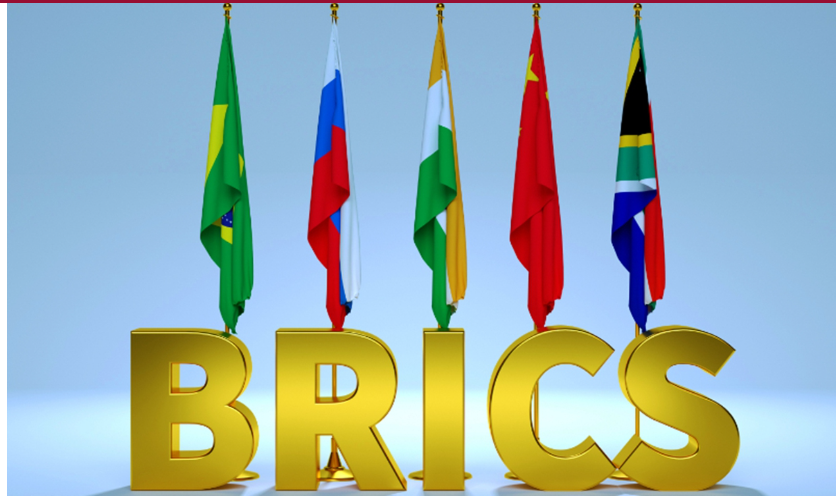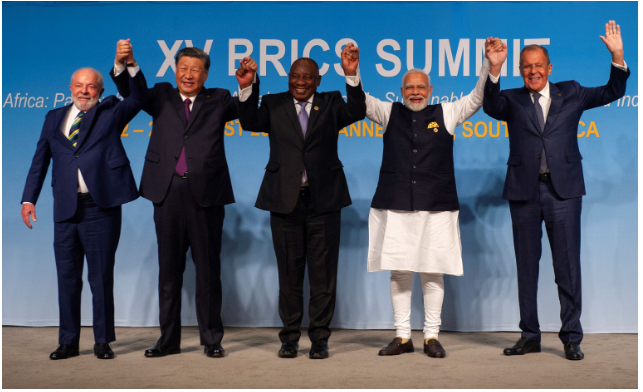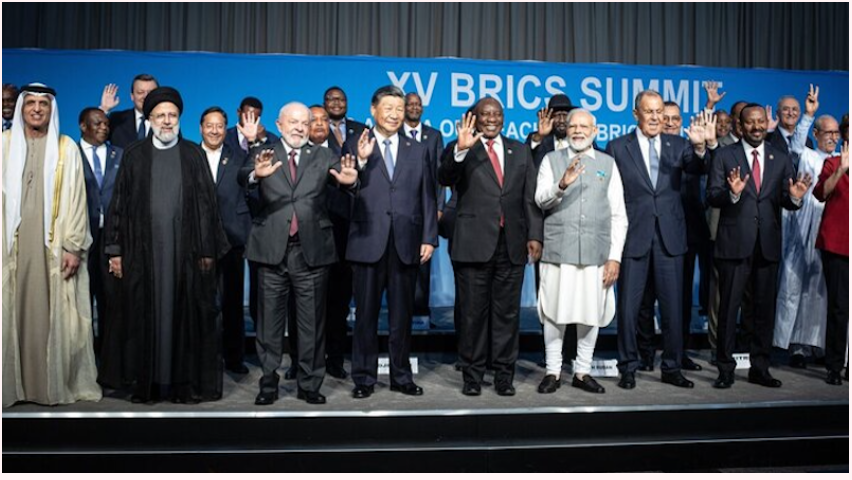 In a significant move that underscores Africa’s growing influence on the global stage, leaders from several African countries participated in the 2024 BRICS Summit held in Cape Town, South Africa. The summit, which included Brazil, Russia, India, China, and South Africa, saw discussions centered around enhancing economic cooperation, expanding trade, and leveraging technology to drive growth across the Global South.
In a significant move that underscores Africa’s growing influence on the global stage, leaders from several African countries participated in the 2024 BRICS Summit held in Cape Town, South Africa. The summit, which included Brazil, Russia, India, China, and South Africa, saw discussions centered around enhancing economic cooperation, expanding trade, and leveraging technology to drive growth across the Global South.
The inclusion of African nations beyond South Africa in high-level BRICS meetings signals a deepening relationship between the continent and the BRICS bloc. Leaders from countries such as Nigeria, Egypt, and Ethiopia were present, advocating for stronger ties with emerging markets and reinforcing Africa’s role as a key player in shaping the future of global trade and geopolitics.
One of the primary focuses of the summit was expanding economic cooperation between Africa and BRICS countries. Trade between the BRICS nations and Africa has grown significantly over the past decade, with China and India leading in infrastructure investment, manufacturing, and resource extraction across the continent. In 2023 alone, trade between BRICS countries and Africa was valued at over $500 billion, with projections showing continued growth.
 At the summit, African leaders emphasized the importance of forging fair trade agreements, technology transfers, and sustainable investment practices that will benefit both sides. Nigeria’s President Bola Tinubu called for a more inclusive global financial system, advocating for reforms that would make international financial institutions more responsive to the needs of developing economies.
At the summit, African leaders emphasized the importance of forging fair trade agreements, technology transfers, and sustainable investment practices that will benefit both sides. Nigeria’s President Bola Tinubu called for a more inclusive global financial system, advocating for reforms that would make international financial institutions more responsive to the needs of developing economies.
We must ensure that trade with our BRICS partners results in industrialization and job creation in Africa, said Tinubu. Our continent must move beyond being a supplier of raw materials to becoming an active participant in the global supply chain.
The BRICS Summit also highlighted technology and innovation as critical areas for future collaboration. African countries are increasingly looking to adopt advanced technologies from their BRICS counterparts, particularly in sectors like renewable energy, digital infrastructure, and artificial intelligence.
India and China, known for their leadership in tech development, pledged to collaborate with African nations to accelerate digital transformation across the continent. China, in particular, has been heavily involved in Africa’s telecom infrastructure, building networks that facilitate internet access in rural and underserved areas. Chinese President Xi Jinping reaffirmed his country’s commitment to supporting Africa’s digital economy, promising more technology transfers and investment in African startups.
Brazil, with its advancements in sustainable agriculture, also discussed working with African nations to boost food security through tech-driven farming solutions. Africa’s agricultural potential is immense, said Brazilian President Luiz Inácio Lula da Silva. By leveraging technology, we can not only feed the continent but also help solve the global food crisis.
Beyond economics and technology, the summit demonstrated Africa’s increasing importance in global geopolitics. As the world’s youngest and fastest-growing continent, Africa’s strategic value to BRICS nations has become evident. The summit showcased Africa’s shifting role from a recipient of foreign policy to a co-architect of global alliances.
African leaders used the platform to push for stronger diplomatic alliances and a united stance on key global issues such as climate change, food security, and peacekeeping. South African President Cyril Ramaphosa emphasized Africa’s desire to have a greater say in global governance structures, including permanent representation on the UN Security Council.
There can be no global peace or stability if Africa’s voice continues to be sidelined, Ramaphosa stated during the summit’s opening remarks. Our future is tied to a more equitable global order where Africa is respected as an equal partner.
 A major outcome of the 2024 BRICS Summit was the discussion of expanding the bloc’s membership. Ethiopia and Egypt have been pushing for inclusion as permanent BRICS members, a move that could strengthen Africa’s representation in the group. While no formal decisions were made, the summit’s discussions indicated a willingness among BRICS nations to consider new members from Africa.
A major outcome of the 2024 BRICS Summit was the discussion of expanding the bloc’s membership. Ethiopia and Egypt have been pushing for inclusion as permanent BRICS members, a move that could strengthen Africa’s representation in the group. While no formal decisions were made, the summit’s discussions indicated a willingness among BRICS nations to consider new members from Africa.
As the summit concluded, leaders from both BRICS and Africa expressed optimism about the future of their partnership. The ongoing cooperation between these nations promises to bring greater economic opportunities, technological advancements, and political influence to Africa, while simultaneously reshaping the global power structure away from traditional Western dominance.
As Africa continues to rise in prominence, its partnership with BRICS nations could be the key to unlocking the continent’s vast potential, helping it achieve sustainable development and a stronger foothold in international diplomacy. With major deals and collaborative frameworks being established, the Africa-BRICS alliance is set to have a lasting impact on the global order in the years to come.
Ennywealth


